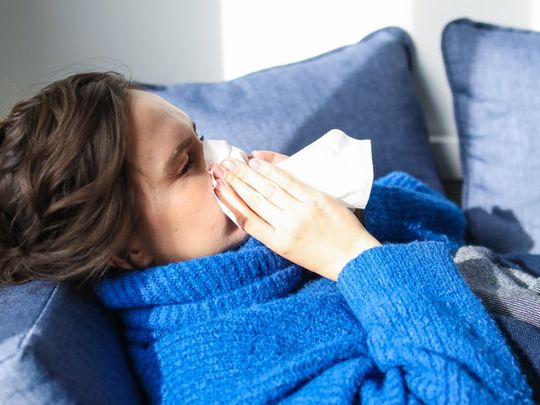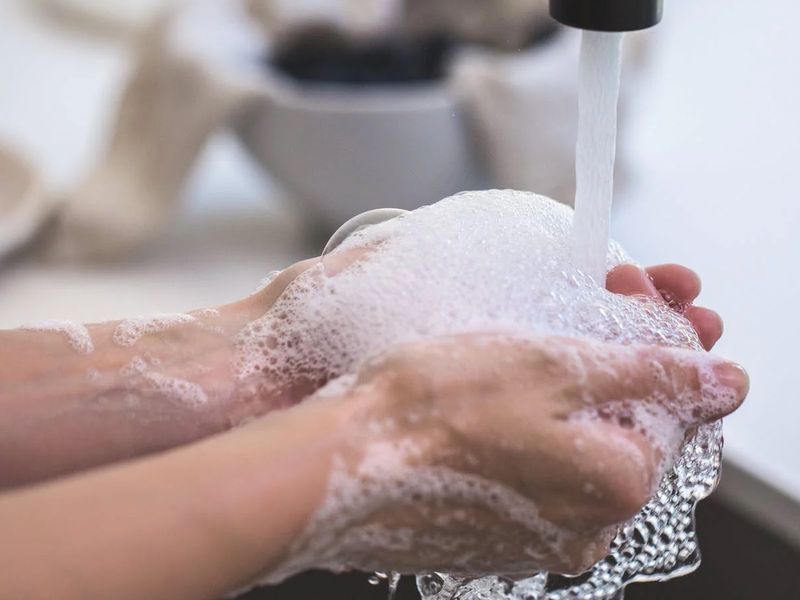
Dubai: Our immune system is part of the organic cellular network that is us. This brings with it several difficulties.
One of them being the ability to truly understand all the levels of interconnectedness and how to plug into that. There is no clear scientific evidence to date that clearly links lifestyle, food or vitamin supplements to a person’s immunity - a key to perfect immunity.
Our immune system is quite efficient by itself, especially if you have the patience to let it function. It has the capabilities to manufacture its own antibiotics, but you need to wait it out.
This is one of the prime reasons medical practitioners advise parents not to pump medications into babies for minor ailments. The building up of antibodies is what really boosts the immune system and that is a natural process. Nature cannot be rushed.
So, now that we have gotten used to relying on external factors to fight ailments, can we truly depend on them to help us boost our immunity, too?
As per a report by Harvard Medical School: “Many products on store shelves claim to boost or support immunity. But the concept of boosting immunity actually makes little sense scientifically. In fact, boosting the number of cells in your body — immune cells or others — is not necessarily a good thing. For example, athletes who engage in ‘blood doping’ — pumping blood into their systems to boost their number of blood cells and enhance their performance — run the risk of strokes.”

What can you really do?
Start with a healthy lifestyle, which essentially translates to living with a sense of well-being that would enhance the overall quality of your existence.
And this would help build a healthier immune system that can fight pathogens better.
Eat right – a diet balanced in proteins, carbohydrates and fats. Fruits and vegetables are a must. Good gut health, and healthy bacteria in your intestines have a direct link to better immunity.
There is scientific evidence that deficiencies of zinc, selenium, iron, copper, folic acid, and vitamins A, B6, C, and E can alter the immune responses in animals, in a test environment. But, are they similar in humans, not much is known, yet.

Herbs and supplements - Harvard Medical School details in a report: “Nearly 30 vitamins and minerals that your body cannot manufacture in sufficient amounts on its own are called ‘essential micronutrients’. British sailors learned centuries ago that living for months without fresh fruits or vegetables—the main sources of vitamin C—caused the bleeding gums and listlessness of scurvy, a disease that often proved fatal. Even today in many low-income countries, people frequently suffer from a variety of nutrient-deficiency diseases.”

They have clarified that five micronutrients—vitamin B6, vitamin C, vitamin E, magnesium, and zinc—“play roles in maintaining immune function, and supplements containing them are often sold as immune boosters in doses that greatly exceed the recommended daily allowance. However, there is no evidence that such supplements have more benefits than merely following a healthy diet.”
So, it might be just healthier, tastier and better to improve your diet.
Similarly, scientists don't know if herbs that seems to raise the levels of antibodies in a blood, when taken as a supplement are actually beneficial.
For example, many people firmly believe in the power of Echinacea, which is an herb that is native to the United States. Its leaves, flower, and root are used to make medicines, especially in traditional herbal remedies by the Great Plains Indian tribes.
According to WebMD.com: “Echinacea is most commonly used for the common cold and other infections… seems to activate chemicals in the body that decrease inflammation, which might reduce cold and flu symptoms. Laboratory research suggests that Echinacea can stimulate the body's immune system, but there is no evidence that this occurs in people.”

Micronutrient food sources (Harvard Medical School)
Vitamin B6 - Chicken, cereals, bananas, potatoes with skin
Vitamin C - Tomatoes, citrus fruit, sweet peppers, broccoli, kiwi fruit
Vitamin E - Sunflower seeds and oil, almonds, safflower oil, peanut butter
Magnesium - Whole wheat, legumes, nuts, seeds
Zinc - Oysters, beef shank, Alaskan king crab, turkey (dark meat)
(Ref: Harvard Medical School)

Exercise regularly – Now this is interesting because you have varying schools of thought that say extreme exercise can actually have a negative impact on the immunity. But, it has to be noted that these conclusions are based on studies on top athletes who indulge in extreme regimes, and do not involve the average person. General understanding is that about 45 minutes of exercise daily that leaves you with perspiration and slight discomfort is a good thing.
It helps you get fitter, which means a better metabolism and a happier immune system.

Right weight – Both of the above help achieve the right weight. This, in fact, has less to do with exercise and more to do with ensuring your calorie intake is accurate. Increased weight results in inflammation, bloating and several chronic issues such as diabetes and hypertension. Each of these compromise the immune system. Inflammation is considered to be a clear sign that your immune system is protesting. So, speak to a medical practitioner and find out what the weight ideal for your body type, lifestyle and health conditions.

Sleep well – This is when your body is repairing itself from the day’s wear and tear. So, getting adequate sleep, which can range anywhere from 7 to 9 hours depending on a person’s needs and age, is necessary. You are in a relaxed state, which means your blood pressure stabilizes, and the stress on your system is reduced.

Self-hygiene – Washing your hands, bathing regularly, changing and washing clothes often, practising social distancing are necessary to avoid infection. Into this, we would also add - ensuring to cook your food well.

Stress – There have been proven links of stress to heart health, but as yet we don’t know the extent of its impact on the immune system. This is because scientists usually study chronic stress and its effects. But, in most cases, stress and stress factors change often, which makes it difficult to establish long-term test cases.
Harvard Medical School clarified in a report that a stress response suppresses a body’s immune response, which essentially means that our susceptibility to catch an infection becomes higher.
A solution – practise meditation, deep breathing techniques and take up yoga.









